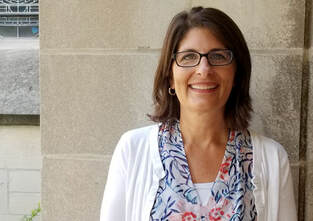 The adolescent years are a complicated and confusing time, and most traditional schools are not equipped to provide the level of social and emotional support that adolescents need to thrive. Alcuin Montessori incorporates traditional Montessori philosophy and current best practices, while placing a strong emphasis on independent, project-based, and student-driven work. Alcuin's middle school provides a safe learning environment; key elements in the classroom that create this type of environment are the daily community meeting and low student to teacher ratio. Students apply high-level critical thinking across all areas of the curriculum. Classes consist of formal lectures, interactive presentations, student-led research, group projects, and more. Students manage daily and weekly homework, take formal assessments and receive quarterly grades in preparation for high school. With our individualized support, they cultivate the executive functioning skills needed for future success. Alcuin’s Director of Admissions, Alejandra Valera, recently sat with Alcuin Middle School Director, Lisa Klus, to share more information and what makes the Alcuin program so special... AV: Let’s get started by talking about remote learning since it’s at the forefront of everyone’s mind. Can you tell us the plan for your middle school students, if we had to revert back to remote learning? LK: Our plan is to keep our remote learning schedule as close to their in-person schedule as possible. We send our students a schedule for the week on Monday morning. The schedule outlines our day, just as it would be if we were together at school. The schedule is color-coded with lessons in different areas, has links to our work or lesson meetings, and all information is duplicated on their Google Classroom, so the students can organize their time. We will begin our day with a community meeting and then break off into various lessons. Our lessons are live or prerecorded, and students are given a follow up activity to the lesson, usually due the next day. The prerecorded lesson gives teachers time to plan individual or small group meetings as needed. If students have presentations or small group discussions, we have the flexibility on Zoom to create breakout rooms. The teacher can circulate in between those rooms. We will also continue to give percentages for student work and the option to retake quizzes or tests for higher grades. Additionally, just like our regular school days, students are invited to "stay after school" to get extra help or meet with a teacher during an open work time during the day. At the end of each week, we will send home a short progress note and checklist to communicate with students and parents about how the week went. Our hope is that this consistent weekly communication will help our students be the most successful at home. Last spring, many of our students shared that they liked that the remote learning schedule was organized like a normal day. Some expressed that it helped them stay organized, some said that it was good to see their friends. 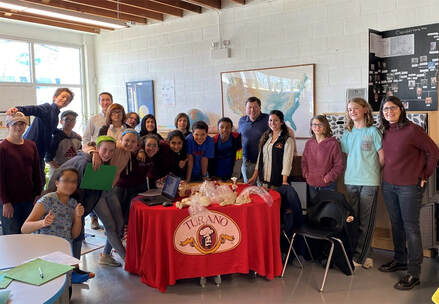 AV: What makes Alcuin’s 7th and 8th grade program so unique? LK: Alcuin’s middle school is special because of the strong effort towards community building, the learning of life science, sustainability, and microeconomics through individual activities and projects driven by student interest. Adolescents learn concepts in their structured curriculum and then take weekly trips to experience the learned concept or unit of study. So, while some people may think Montessori is only for preschool-aged children, middle school is not too late to begin Montessori. It looks different compared to the younger grades, while still meeting the individual needs of the adolescent. AV: How does it work with the 7th and 8th graders together? Is there too much of an emotional age difference? LK: Dr. Montessori believed that in creating multi-age groupings students would have the flexibility to work at their own pace. With a wider age range, students can work within the 2-year curriculum and master concepts as they are ready. When you walk into a Montessori 7th and 8th grade classroom, you often cannot tell the difference in age groups. Students work on common ideas within the two-year curriculum cycle with a scaffolding approach to challenge those that need it and give added time for those that need to practice a skill. Our 8th grade students often will clarify questions for the 7th, reteach an idea, or peer edit papers if asked. Dr. Montessori believed that when the older student teaches the younger student, that is when true knowledge has been established; therefore, the multi-age grouping gives the adolescent time to learn, practice, apply, and teach skills within the two-year cycle of curriculum. 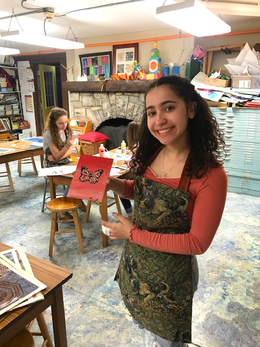 AV: How does Montessori approach math? LK: Alcuin has a hands-on, individualized math program highly integrated with science in which students have the opportunity to create real-world project connections to research, investigate, and share with their teachers and peers. The more we establish relationships between math and science, the more we increase student knowledge, interest, and confidence in the material. Students in our program typically are at a point in their development where they are learning concepts in pre-algebra, algebra I, or geometry. The goal is for each student to complete algebra I work by the end of the 8th grade year and to enter high school with confidence in their math abilities. AV: Tell me more about the reading curriculum. LK: We use Lucy Calkins reading workshop materials to teach reading at the middle school level. Our writing workshops incorporate direct lessons from the reading teacher, open writing time with one-to-one check-ins with the teacher, and small group work, editing, and sharing written work. Students learn to pace their own reading, monitor their comprehension, and reflect on various elements in the text to understand the author’s purpose. Within the workshop format, we also choose books to connect with our social studies units of study. For example, during our Social Justice unit in social studies, students chose from the books To Kill a Mockingbird, The Breadwinner, and Stella by Starlight. We discussed the following questions revolving around social justice: What is oppression and what are the root causes? How are prejudice and bias created? How do we overcome them? What are the responsibilities of the individual in regards to issues of social justice? Can literature serve as a vehicle for social change? Each week, students also participate in a seminar discussion. The focus of the seminar is divergent thinking. Students learn to question or comment using direct text content or by comments related to other participants' shared thinking. Seminar encourages participants to closely listen to their peers, think critically, and clearly articulate their thoughts. In doing so, the goal is to develop a deeper understanding of the ideas within the text. AV: Can you talk about the Wednesday trips? LK: The “prepared environment” for the adolescent is out in the world: traveling, observing, listening, and learning from others. The idea is for the adolescent to exercise the ability to disconnect from family, overcome uncomfortable feelings, and perhaps have other people meet your emotional needs. The Wednesday trips are used to deepen their understanding of a concept they are learning, explore a new idea, work with the community on service trips, and to build and extend our community. One example of a Wednesday trip is when we were studying immigration to the United States, we visited the Hull House in Chicago and learned in depth about which groups of people migrated to Chicago and how that movement shaped the city. The Wednesday trips and field studies are at the heart of the adolescent Montessori curriculum. Of course, with the pandemic, the trips will incorporate all of the social distancing measures and safety protocols we have in place. 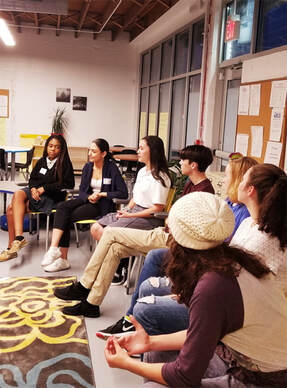 AV: What about standardized testing? I know at Alcuin, we do not teach to the test, but rather we use the results as one of many data points to assess our students. LK: Absolutely! Every year, Alcuin conducts standardized testing to collect more data about our students. We use this assessment twice-yearly: NWEA MAP Growth test. This test is a computer-based, adaptive assessment that provides us with important feedback about the students’ learning. It also helps us to more clearly communicate with high schools about students’ abilities. MAP is designed to really challenge students in order to determine their upper limits. It will offer increasingly harder questions until a student is unable to provide the correct answer. AV: At Alcuin, in addition to our individualized/personalized education, we also use technology. Can you share more how technology integrated into the program? LK: The middle school uses computers to teach the skills, knowledge, and behaviors that students will need as successful and responsible members in the community and as lifelong learners. The school expects those who use the computers to do so in a way that is consistent with Alcuin Montessori School’s educational mission and this policy. We are a one-to-one school; each student has a Chromebook to use for school work during the school year. AV: Tell me about the middle school microeconomy and Erdkinder. LK: Maria Montessori recommended that the adolescent should spend a period of time in the country away from the environment of the family. This time would provide an opportunity to study civilization through its origin in agriculture. Dr. Montessori outlined a general plan for their studies and work but believed that the program, she called Erdkinder, could only be developed from experience. In an urban school like ours, this work is carried out through gardening and projects within a land space or community garden. We have an established microeconomy business and a small piece of land that works in conjunction with our food production. For the adolescent and for all of us, growing your own food is powerful. To grow it and then share or sell it some way is Dr. Montessori’s vision for our 7th and 8th grade students. Our middle school students have created a student-led business, The Bee’s Knees Bakehouse. They bake bread weekly for the Alcuin community and grow their own herbs and vegetables used in the recipes. Their mission is, "To educate ourselves on how to organize and run a successful business, to learn everyday skills so we can apply them to future jobs, and to teach younger students about our bread, the environment, and how we are all connected." 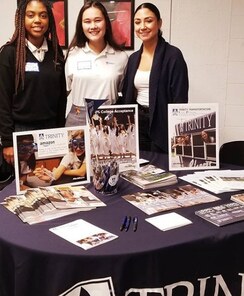 AV: Do you feel Montessori properly prepares adolescents for high school? LK: Our students are fully prepared for high school. Montessori talked about a preparation for life, as students move towards adulthood. In preparing the students for their next step in high school, we transition in a few ways. First, we provide percentages for each subject that translate on high school transcripts into grades. High schools use this data as one criteria in class placement. Next, we provide a strong curriculum that has a foundation of state standards and expectations for all middle school students. Finally, we give them many opportunities to build self confidence as they learn to advocate for themselves. At our high school nights, past students come back and share their experiences and give advice to our middle school students. They share that they easily transitioned high school and have been highly successful in their academic work, day-to-day planning, relationships with peers, and in the various clubs and sports they have joined. AV: Thank you, Lisa! With a clear understanding of the emotional, social, and academic needs of teenagers, Alcuin’s middle school is specifically designed to guide and nurture students, setting them up for success in life. For more information on admission to our middle school, please contact us. Comments are closed.
|
ABOUTA blog by various Alcuin staff members. Archives
September 2023
Categories
All
|
ALCUIN MONTESSORI SCHOOL | 324 North Oak Park Avenue and 6942 W Roosevelt Road | Oak Park, Illinois | 708.366.1882

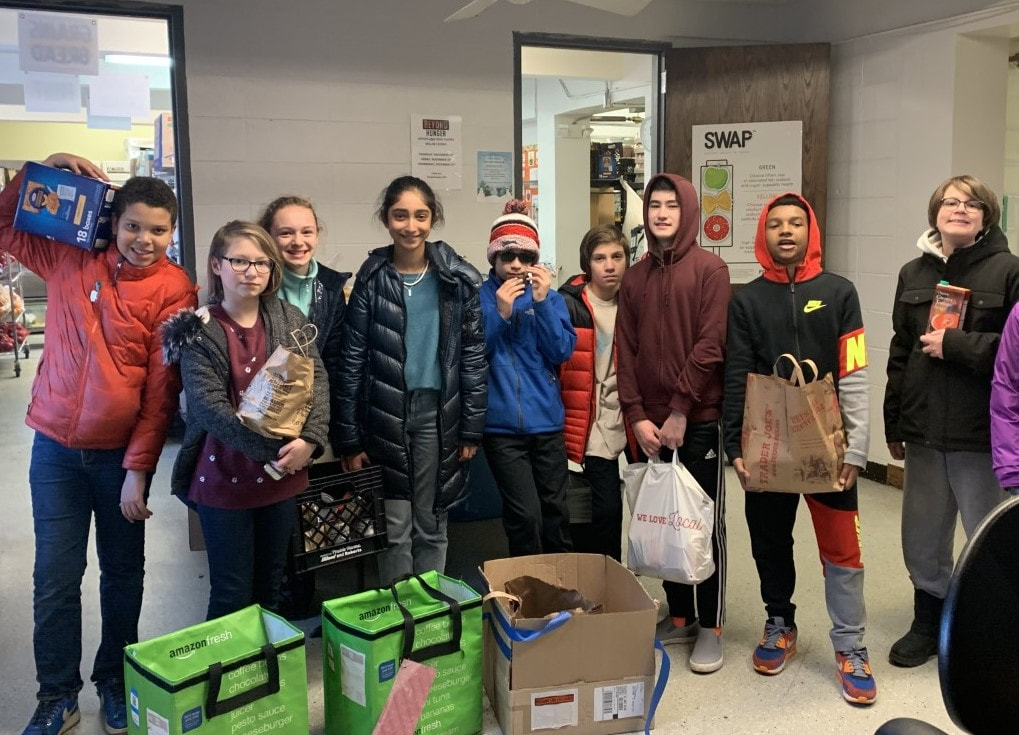
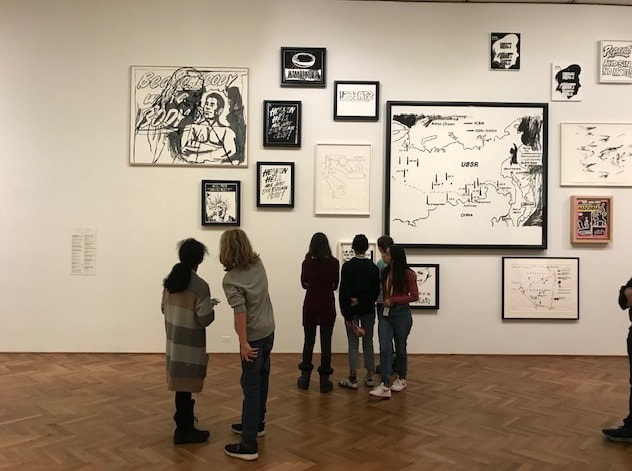
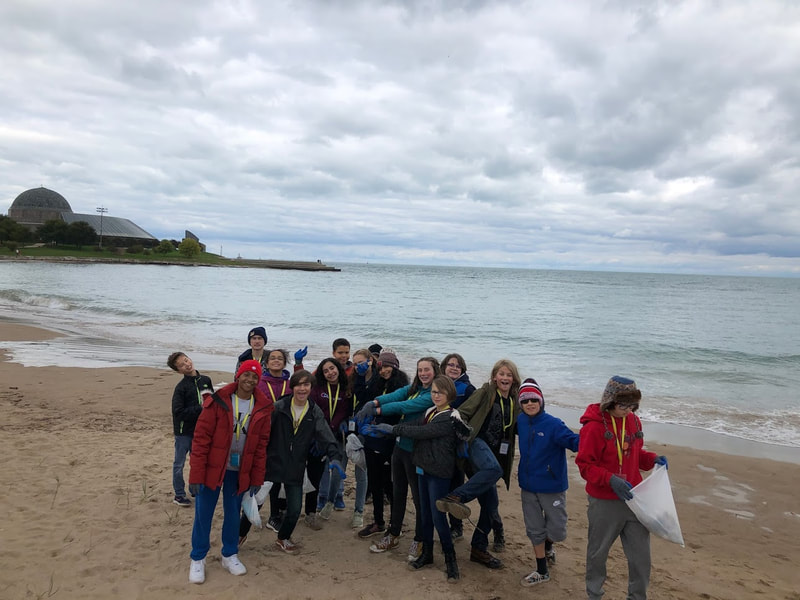
 RSS Feed
RSS Feed